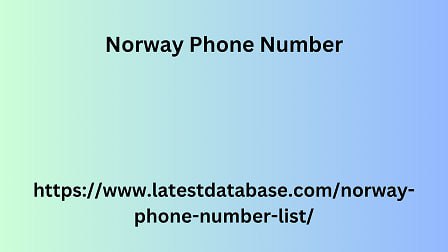Post by account_disabled on Feb 28, 2024 2:11:42 GMT -6
When you create content for the web you must keep in mind that you are writing, on the one hand, for readers and on the other for Google, the search engine that will host your articles. To do a good job you have to conquer both: attract and engage users with quality content, i.e. useful and captivating texts, and fully satisfy the technical and qualitative parameters dictated by Google . Today I want to talk to you about the qualitative aspects required to create texts for the web: what does " quality content " mean for Google and what questions do you need to ask yourself to create articles considered valuable by the most used search engine in the world? Quality content and algorithms Google says it clearly in its blog : its mission is to "present relevant and authoritative content to users", constantly improving readers' search results.
To do this, it releases changes to its algorithms every day , with often non-evident updates, defined as " basic updates ", which however can Norway Phone Number have a certain influence on the positioning of websites. These updates concern the improvement of the ways in which its systems evaluate content : as a result, some sites can be reviewed positively and move up positions on the search results pages; others, on the contrary, can be moved downwards. Self-assessment with 3 questions Google suggests you offer the best content possible so as not to suffer penalties and be found on the web. But what does “quality content” mean in concrete terms? The search engine helps you by providing a series of questions that are used for a self-evaluation of your texts .

Let's see together the three fundamental questions to focus on when preparing content for websites or blogs. 1. Does your content provide new and beyond-the-obvious information? The quality of content for Google passes first and foremost through originality : when you create texts for the web, ask yourself whether you are providing new information, never published before, or, with your data and research, you are completing the description of a topic. In short, are you creating added value with your intervention? Copying or rewriting existing sources, without additional input, is not a valuable practice and your text will not get a good search engine rating. 2. Is the information you offer reliable? Why should people who read your article trust what you write? Where does the data come from and what sources did you get it from? For Big G, quality is also transparency combined with reliability .
To do this, it releases changes to its algorithms every day , with often non-evident updates, defined as " basic updates ", which however can Norway Phone Number have a certain influence on the positioning of websites. These updates concern the improvement of the ways in which its systems evaluate content : as a result, some sites can be reviewed positively and move up positions on the search results pages; others, on the contrary, can be moved downwards. Self-assessment with 3 questions Google suggests you offer the best content possible so as not to suffer penalties and be found on the web. But what does “quality content” mean in concrete terms? The search engine helps you by providing a series of questions that are used for a self-evaluation of your texts .

Let's see together the three fundamental questions to focus on when preparing content for websites or blogs. 1. Does your content provide new and beyond-the-obvious information? The quality of content for Google passes first and foremost through originality : when you create texts for the web, ask yourself whether you are providing new information, never published before, or, with your data and research, you are completing the description of a topic. In short, are you creating added value with your intervention? Copying or rewriting existing sources, without additional input, is not a valuable practice and your text will not get a good search engine rating. 2. Is the information you offer reliable? Why should people who read your article trust what you write? Where does the data come from and what sources did you get it from? For Big G, quality is also transparency combined with reliability .
